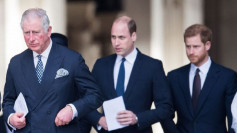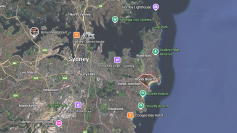North Korean leader Kim Jong Un has issued orders for the mass production of suicide drones following a recent test demonstration, marking a significant escalation in the country's unmanned aerial capabilities.
State-run Korean Central News Agency (KCNA) reported Friday that Kim emphasized the need for "full-scale mass production" of these drones, highlighting the evolving global competition in unmanned military technology. "The competition for using drones for military purposes is accelerating around the world," Kim said, urging updates to military theory, practice, and education in response to these changes.
Commonly referred to as loitering munitions, suicide drones are designed to hover and strike targets with precision, a tactic that has seen widespread use in conflicts such as the war in Ukraine. KCNA noted that the latest test, overseen by Kim himself, demonstrated the drones' capability to hit both land and sea targets with accuracy. Kim reportedly stated that these drones offer "easy to use... component of striking power" due to their cost-effectiveness and broad applicability.
North Korea's latest move raises concerns about its growing military cooperation with Russia. Kim previously guided tests of suicide drones earlier this year, prompting questions about whether Pyongyang has received technological support from Moscow. This cooperation, which has been developing rapidly, has caught the attention of Western nations. While North Korea's intentions are often opaque, its alliance with Russia has deepened, particularly as both nations face heightened tensions with the West.
"He underscored the need to build a serial production system as early as possible," KCNA reported. The drones, which North Korea unveiled for the first time in August, have been tested to "precisely" strike designated targets. The state media emphasized their potential to be deployed across different ranges and environments, providing North Korea with a versatile and lethal new capability.
South Korea has already felt the implications of North Korea's drone advancements. In recent incidents, North Korean drones have breached the South's airspace, flying over sensitive areas, including Seoul and no-fly zones around the presidential office. Such incursions have prompted the South Korean military to strengthen its air defense systems, deploying weapons specifically designed to counter these threats.
The strategic partnership between North Korea and Russia, recently formalized through a comprehensive defense pact, further complicates the regional security landscape. Reports from South Korean and U.S. officials indicate that North Korean troops have been deployed to assist Russian forces on Ukraine's western frontlines, a move that has heightened concerns about Pyongyang's expanding military influence.
KCNA's report quoted Kim as saying that recent developments necessitate a "serious update" in North Korea's military doctrine. The drones' relatively low production costs and adaptability make them a crucial element in North Korea's broader defense strategy. "Such objective change urgently calls for updating many parts of military theory, practice and education," Kim said.
In addition to its focus on drones, North Korea continues to conduct ballistic missile tests, defying U.N. sanctions and drawing international condemnation. Kim's latest directive for mass production of drones underscores the regime's intent to enhance its asymmetric warfare capabilities, further complicating diplomatic efforts aimed at denuclearization and regional stability.
North Korea's focus on unmanned aerial systems aligns with broader trends in modern warfare, where drones have become a critical component of military operations. The potential for these weapons to be integrated into North Korea's broader arsenal has significant implications for regional security. As Kim pushes ahead with these developments, neighboring countries and global powers will be watching closely, wary of the shifting balance of power on the Korean Peninsula and beyond.






